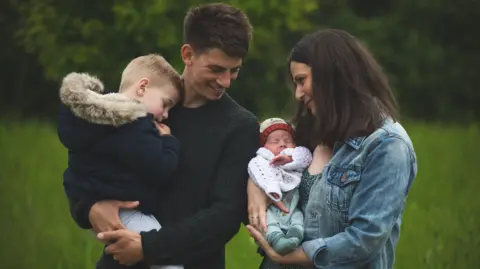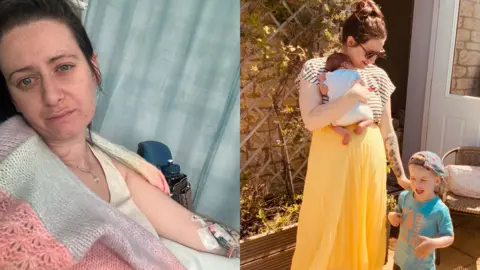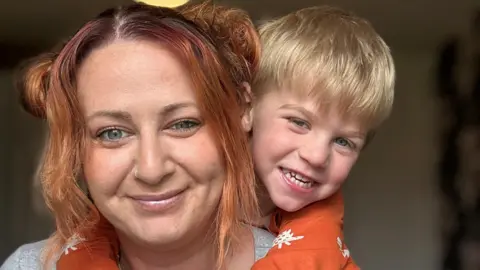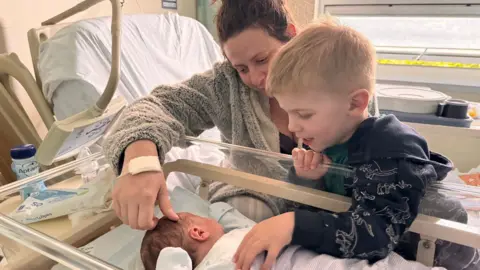Endometriosis: 'My appendix was removed'
 PA Real Life/PA
PA Real Life/PAA woman who faced years of “medical gaslighting” while fighting for an endometriosis diagnosis and was told her chances of conceiving were low, has since given birth to two boys.
Sophie Spindler, 33, from Bishop’s Cleeve started searching for answers after years of persistent "debilitating" symptoms from a polycystic ovary syndrome (PCOS) diagnosis.
Doctors attributed her symptoms to phantom pain, and even appendicitis, which led to her having her appendix being unnecessarily removed.
Ms Spindler said she felt “helpless, scared and lonely” after finally being diagnosed with endometriosis in 2015.
 PA Real Life/PA
PA Real Life/PAOn the first day that she started her periods, aged 14, she said she was vomiting, she could barely walk, and she often found herself lying on the floor in pain – but “thought that was normal," she said.
“I went to hospital and they did scans and ultrasounds, and there was a lot of excess fluid around my ovaries.
The doctors explained she had polycystic ovaries and it was just something she was "going to have to live with”.
“The only way I can describe it is it’s like somebody is inside you with a knife, stabbing outwards and inwards… it takes your breath away,” she said.
 PA Real Life/PA
PA Real Life/PABut as her symptoms worsened she “knew something wasn’t right”.
After "searching for answers" she was finally diagnosed with endometriosis in 2015 and had it surgically removed – she felt a “huge sense of relief”.
Ms Spindler then met her husband and soon after started trying for a baby.
But after 18 months without success she got further tests and discovered the endometriosis had returned, her ovaries were polycystic and her tubes were damaged, so their chances of conceiving naturally were said to be around 5%.
She said she felt like her body was "just continuing to fail".
 PA Real Life/PA
PA Real Life/PABut to her amazement, she tried an NHS-funded IVF cycle and had her first son Luca on 5 November, 2020.
“It’s been almost 20 years of being told, ‘It’s this. No, it’s not. It’s this. No, it’s not’,” she said.
“If (my story) can even help one person to feel like they’re not alone and to be empowered to go and be their own advocate, then I’ll scream it from the rooftops, I don’t care,” she added.
A spokesperson for NHS England said: “Endometriosis and all types of pelvic pain can be very debilitating, and it is important that women are taken seriously to get early diagnosis and offered the most effective treatments.
“We have introduced dedicated pelvic health clinics to provide support for endometriosis, and are working with local NHS organisations to develop women’s health hubs to provide better menstrual health services.
“We are committed to helping women affected by endometriosis and, while there have been some improvements, we know there is a lot more to do.”
Follow BBC Gloucestershire on Facebook, X and Instagram. Send your story ideas to us on email or via WhatsApp on 0800 313 4630.
